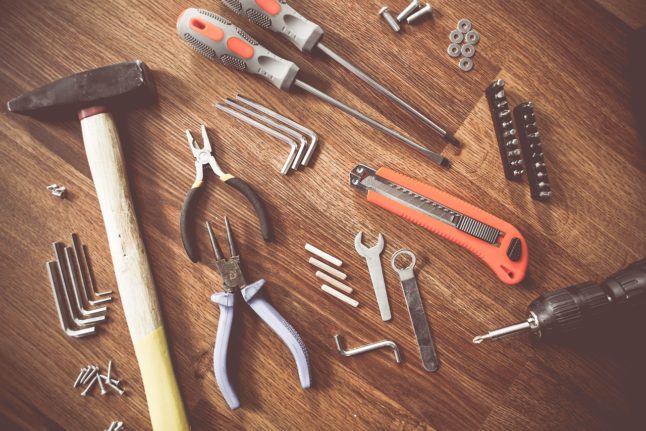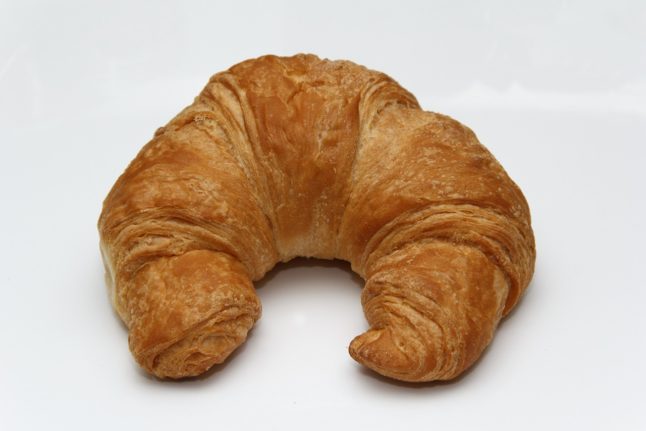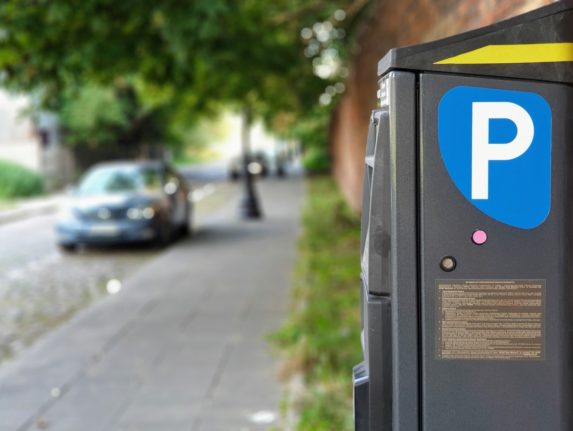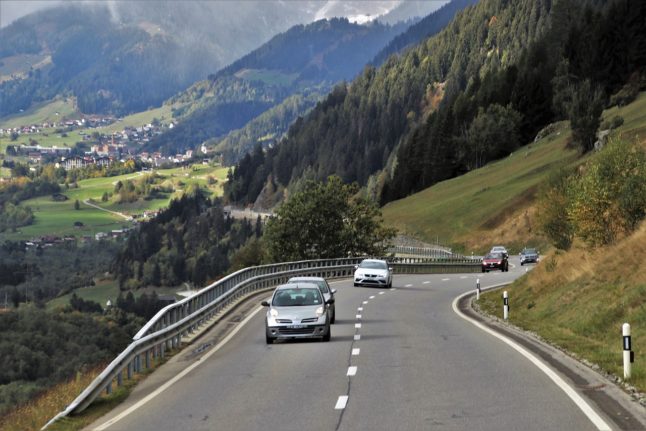You probably already know (and if not, then you definitely should) all about speed limits on Swiss motorways, as well as on main and secondary roads:
EXPLAINED: What you should know about speeding fines in Switzerland
There is also a matter of always having a current-year vignette affixed to your vehicle’s windscreen for driving on the country’s motorways:
Swiss vignette: What you need to know about Switzerland’s motorway charge sticker
Last but not least, you should also be familiar with weather-proofing your car before driving in snow:
Reader question: When must I change my winter tyres in Switzerland?
All of the above rules are common sense, or at least they should be.
But leave it to the Swiss to come up with some other ones as well, some of which can…drive you crazy.
No garden hose or tools are allowed in the car
You may think this is a joke, but two people didn’t laugh at all when they were stopped by Bern police and, as recently reported by the Swiss media, fined 350 francs each for having a garden hose and other tools in their vehicle (but no Swiss Army knife in sight).
Apparently, tools found in a car without a plausible explanation regarding their purpose can be assumed to be intended for committing burglaries.
The two men had not done anything wrong; but as the police assumed — not yet.
It is not known whether the police jumped their gun (figuratively speaking) because the two individuals were Georgian nationals, one of whom lives in France.
Besides slapping them with a fine, the police confiscated and destroyed the screwdrivers, wrenches, flashlight, and a piece of a garden hose.

Alleged crime tools. Photo: Pixabay
Don’t drive slowly
Wait, what?
You heard it right: driving too slowly could result in a hefty fine.
You may think you are being cautious, but police (and other motorists) may not see it quite this way.
Example: In 2022, a driver was stopped by police after they received an anonymous call that a car was driving too slowly on a steep mountain road.
The car in question was hauling an enclosure with a horse in it, so the man drove cautiously on a narrow and winding Julier Pass in the Swiss Alps.
Once he descended, the police gave him a 780-franc ticket for driving too slowly.
“I just don’t understand what’s going on in this world,” the driver remarked.
You must observe the zipper principle
No, not that zipper.
From 2021, the zipper principle is mandatory wherever two lanes merge into one on the motorway.
This means that each car traveling in the free lane must leave room for one vehicle to merge from a blocked lane.
This rule is intended to prevent vehicles from merging into the free lane in a decidedly un-Swiss chaotic and haphazard manner, disrupting the flow of traffic and possibly causing accidents.
Behind the wheel, keep your hunger in check
One widely reported incident involved a Zurich driver who was slapped with a 250-franc fine for eating a croissant while driving.
That’s because eating, or drinking hot beverages, is considered a risk to road safety, as it interferes with the driver’s control of the vehicle.
So if hunger strikes while you are driving, resist the urge to eat. Because the hefty fine you could get may be hard to digest.

Dangerous while driving. Photo: Pixabay
Don’t slam your car door after 10 pm
If you live in Switzerland, you have probably been forewarned that after 10 pm, not the slightest noise should be made anywhere in the country.
Throughout cities, villages, mountain peaks, and valleys, the eight hours between 10 pm and 7 am are sacred — the official national quiet time.
If you slam your car doors, either inadvertently or on purpose, and someone complains, you are in trouble. (Yes, you will be slapped with a fine).
It goes without saying that, by the same token, you shouldn’t be blowing your car horn at night either.
Be careful when re-parking your car
Say you were parked in a paid spot and your time is up.
You want to put some more coins into the meter to extend your time. Not in Switzerland.
If you want to remain in the same spot, you must first drive, even if short distance, and only then come back to the same spot and pay for it again.
We are not sure why that is, except maybe so that your life is not too easy.
These are some other road and driving rules you should know about:
EXPLAINED: How visitors to Switzerland can avoid driving penalties



 Please whitelist us to continue reading.
Please whitelist us to continue reading.
Member comments